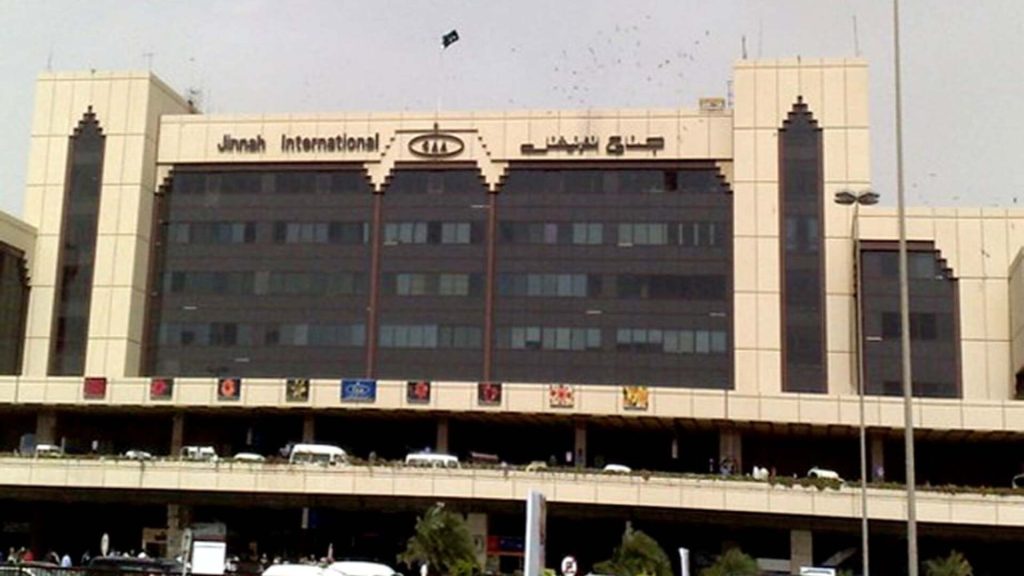The government did not endorse an advisory service agreement with an arm of the World Bank Group for handing over Pakistan’s three international airports to a foreign country due to objections raised by some cabinet members. The Economic Coordination Committee (ECC) of the Cabinet, which deferred the approval of the agreement, cleared Rs6.2 billion payment as part of Reko Diq mines settlement deal.
It also authorised to take Rs65 billion loan to make share payments by the federal government on behalf of the Balochistan government. Finance Minister Ishaq Dar presided over the ECC meeting.
“The ECC deferred a summary of the Ministry of Aviation on engagement of International Finance Corporation (IFC) as transaction adviser for the outsourcing of three airports,” according to the Ministry of Finance.
In 2019, Qatar had shown interest in taking over the management, operation, and development of the New Islamabad International Airport, Lahore’s Allama Iqbal International Airport and Karachi’s Jinnah International Airport.
The aviation ministry adopted a dilly-dallying approach and was delaying the transaction under different pretexts for the past many years.
In December, Prime Minister Shehbaz Sharif instructed to hire the IFC as transaction adviser and outsource the airports in three months – a deadline that had lapsed.
The sources said that some cabinet members questioned the motive behind bringing the transaction advisory service agreement in the ECC, saying it was not the right forum.
Other members objected to certain clauses of the draft agreement.
The IFC – an arm of the World Bank Group – is being hired to prepare a transaction structure for the outsourcing of the airports at a consultancy cost of around $4 million.
The members also objected to imposing penalties on the IFC for missing the milestones.
Pakistan has been struggling to arrange $6 billion loans to meet a condition by the International Monetary Fund for reaching a staff-level agreement.
The Pakistan Democratic Movement-led government also enacted a new Inter-governmental transactions law to fast-track sale of national assets to raise additional funds. But it had yet to conclude even one transaction.
The government had adopted a so-called fast-track route to hire the IFC under the Public-Private Partnership Authority Act, 2017. The PPPA regulations provide for the hiring of IFC as a transaction adviser through direct contracting subject to the approval of PPPA Board. Almost three months ago, the PPPA Board allowed to directly engage IFC as a transaction adviser for outsourcing the operation of the three airports.
The Civil Aviation Authority Board approved the draft Transaction Advisory Agreement early this month subject to legal vetting by the Ministry of Law and Justice.
The ECC was informed that the board observed that since the TASA was based on success fee model with penalties for failure to proceed with the transaction on the part of the client, there was a need for strong political commitment for the outsourcing of the operation of three target airports “from our side”.
“In view of the past experience, a clear demonstration of such a commitment will also be crucial not only for the completion of this process,” according to the CAA Board.
However, some of the ECC members were of the opinion that after the PM Office’s commitment there was no need for seeking any other commitment.
According to the finance ministry, “The ECC approved a summary regarding arrangement of finance facility for funding of Balochistan government’s share of obligation in Reko Diq project dispute settlement.”
It also gave directions to the Finance Division to arrange payment of mark-up amounting to Rs6.2 billion for the period from March 31, 2022 to December 30, 2022 to the NBP for the short-term finance facility of Rs65 billion.
The ECC also authorised the finance ministry to finalise a new finance facility of Rs65 billion for a seven-year term at six-month KIBOR Rate with the NBP, which currently stood at 22%.
The Ministry of Finance would issue the sovereign guarantees to arrange the loan from the NBP after the last short-term facility expired in December 2022.
The liability of the previous Short-Term Finance Facility of Rs65 billion would be cleared through a new finance facility.
The repayment of finance facility would be made directly by the Finance Division through budget allocation.
In 2019, the International Centre for Settlement of Investment Disputes (ICSID) slapped a total $6.5 billion fine on Pakistan and in favour of the M/s Tethyan Copper Company Pvt for the country’s failure to implement the Reko Diq copper-gold mineral resources development project.
As a result of a settlement with the foreign investors, Pakistan agreed to pay $900 million to TCC along with the interest in addition to giving 50% stakes to Barrick Gold Corporation in the Reko Diq project.
The remaining 50% was equally distributed between the federal and provincial governments.
Pakistan already paid $900 million along with interest payable at an annual rate equal to the US Prime Rate plus two percentage points for the period from July 2022 till December 15, 2022 to Antofagasta as consideration for the acquisition of Antofagasta’s shares in the Reko Diq project as per terms set out in the Antofagasta Exit Deed.
Separately, the interest amount earned from HSBC Bank would also be payable to Antofagasta.
The federal government was providing the requisite share of funding on behalf of the Balochistan government through market financing, raised against the Government Holding Private Limited balance sheet.
An amount of $12.7 million for the government share towards interest payable to Antofagasta for the period up to December 15, 2022 was deposited in the designated Escrow Account from the said loan of Rs65 billion.
Courtesy Express Tribune





